In today’s world, solar energy is not just a buzzword; it’s a viable, sustainable solution for reducing energy costs and environmental impact. As homeowners and businesses increasingly shift towards renewable energy, choosing the right solar panel system becomes an intricate decision. With so many options available, it’s crucial to navigate this landscape thoughtfully. Here are some key questions to ask when choosing solar panel systems to ensure you make an informed decision.
1. What are my energy needs?
Before diving into the specifics of solar panels, take a step back and assess your energy consumption. Review your utility bills from the past year to understand your usage patterns. Are there particular months when your consumption spikes? Understanding your energy needs will help you determine the size and type of solar panel system that’s right for your home or business.
2. What type of solar panel should I consider?
Solar panels come in several varieties: monocrystalline, polycrystalline, and thin-film, each with its pros and cons. Monocrystalline panels are efficient but tend to be more expensive. Polycrystalline panels are more budget-friendly but may take up more space. Thin-film solar panels are lightweight and flexible but usually less efficient. Research each type and consider your budget, available space, and aesthetic preferences before making a choice.
3. How much roof space do I have?
The available roof space can significantly influence the type and number of solar panels you can install. Inspect your roof’s orientation—south-facing roofs typically receive the most sunlight, making them ideal for solar installation. Additionally, consider any shading from trees, buildings, or chimneys. A solar installer can provide a detailed assessment and help you determine the best configuration for your unique situation.
4. What is the warranty policy?
A robust warranty can provide peace of mind about your investment. Solar panels usually come with a product warranty (covering defects) and a performance warranty (guaranteeing a certain level of efficiency over time). Look for panels with a warranty of at least 25 years, and be sure to understand what it covers and its terms. Additionally, inquire about the installation warranty—who will fix issues if they arise after installation, and how long does their warranty last?
5. How do I choose a reputable installer?
Your choice of solar panel installation company is just as important as the panels themselves. Research their certifications, experience, and customer reviews. Ask for references and check their track record with previous installations. A reputable installer should not only have the necessary qualifications but should also provide clear communication, transparency about costs, and ongoing support.
6. What is the total cost of the solar panel system?
Cost is one of the most significant factors for any solar installation. Obtain detailed quotes from multiple installers, breaking down the costs for equipment, installation, permits, and any additional fees. Keep an eye out for financing options, as many companies offer loans, leases, or power purchase agreements (PPAs) that can help spread out the costs. Evaluate the long-term savings from decreased utility bills against the upfront investment to determine the system’s value to you.
Additional resources:How to Select Electric Lift Truck Batteries? 7. Are there available incentives or rebates?
How do I choose a BMS?BESS Benefits: How Battery Energy Storage Systems ...How to Choose the Right Lithium Battery for Your DeviceCar battery trick: How to buy the 'freshest' battery on the shelfHow Lithium-Ion Heavy Truck Starter Batteries Work?What are the rules for lithium battery storage?Many governments and local utilities offer incentives and tax breaks for solar panel installations. These can significantly reduce your initial costs and improve your return on investment. Research available programs in your area or consult with your installer to understand what financial incentives you may qualify for. Don’t miss out on potential savings!
8. How will solar impact my property value?
Helping the environment while boosting your property’s value is a win-win scenario. Studies show that homes with solar panel systems can sell for more than those without. However, market conditions can vary. Consult a local real estate expert who can provide insight into how solar energy may affect property values in your area.
9. What is the expected return on investment (ROI)?
Eager to know how solar panels can affect your finances long-term? Calculate your expected ROI by considering installation costs, potential savings on energy bills, available incentives, and the lifespan of your solar panels. Most systems pay for themselves within 5 to 10 years, leading to significant savings in the decades to come.
10. How will solar technology evolve over time?
Solar technology is continuously advancing, which may impact your choice of system. Look for manufacturers and products that show a commitment to innovation and development. The solar landscape can change rapidly; staying informed about new technologies could enhance performance and efficiency, making your initial investment even more worthwhile.
Choosing the right solar panel system requires thorough research and consideration. By posing these key questions, you empower yourself to make a decision aligned with your energy needs, financial situation, and environmental goals. As solar technology advances and prices continue to drop, the journey into solar energy has never been more accessible or beneficial.






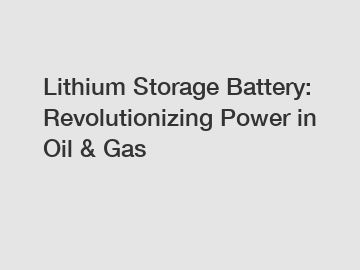
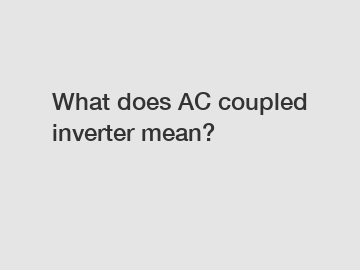
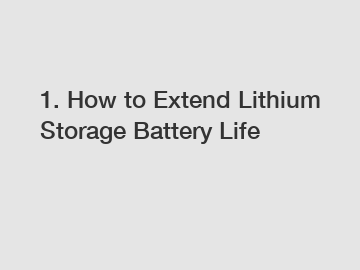
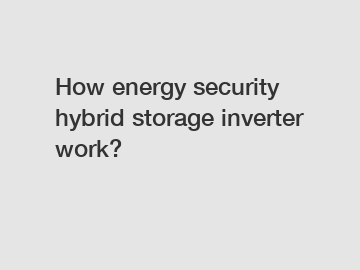
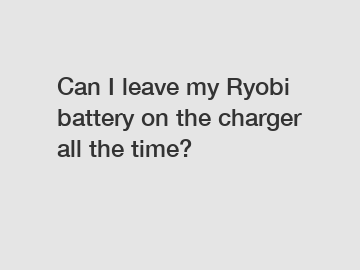
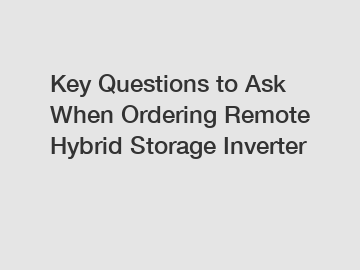
Comments
All Comments ( 0 )